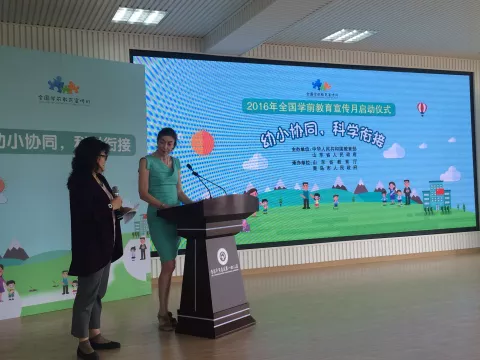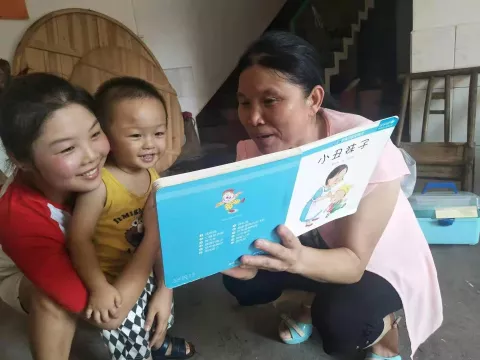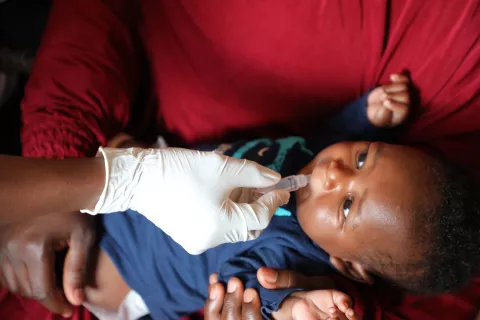Not a kindergarten, more than a kindergarten
Not a kindergarten, more than a kindergarten
Frankly speaking, I wasn't totally surprised when I first stepped into a UNICEF-supported Early Childhood Development (ECD) centre in Hunan Province. Colourful decor, cartoon paintings, toys and huge plastic building blocks … Except for a kiosk that stands beside a stack of story books on the desk displaying the parenting portal jointly developed by UNICEF and the Ministry of Education, nothing is much different from an ordinary county day-care centre in western China. The one thing that caught my eye was seeing parents or grandparents playing together with children at the centre, a not so common occurrence in most Chinese kindergartens. In fact, I quickly learnt that the most important component and key success factor of the community-based model of ECD service is parent engagement and education.
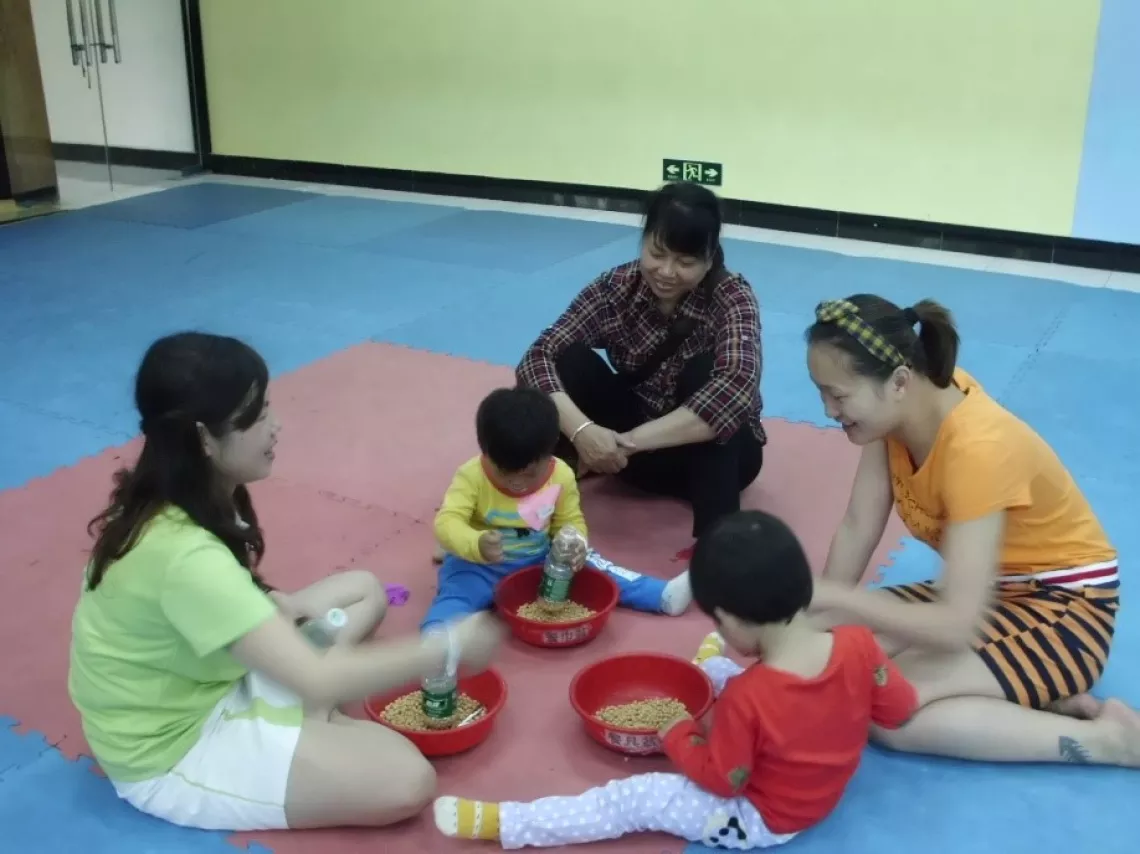
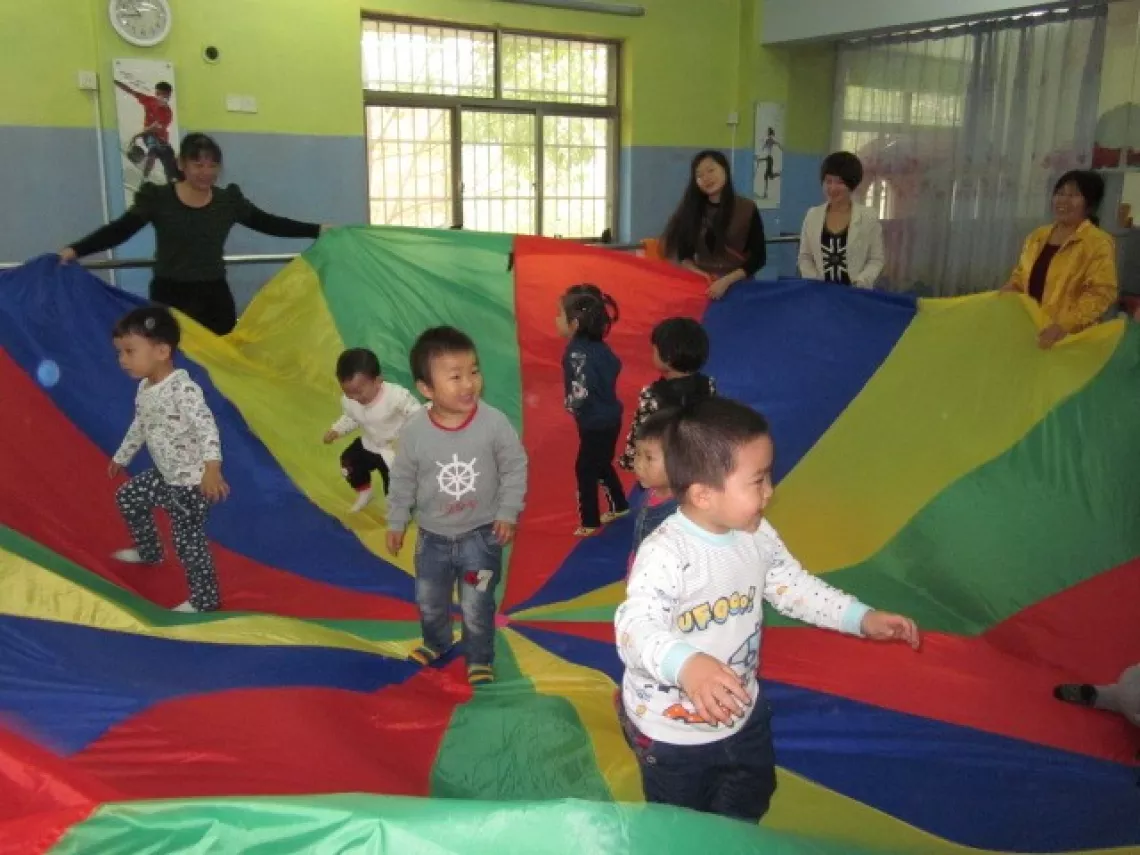
Not a lot of people have heard about the term ‘window of opportunity' and know that 70 per cent of brain development occurs by age three and 90 per cent by age five. Latest research confirms that nature and nurture work together in shaping a child's life in the future – the brain is as influenced by its environment as it is by its genetic blueprint. Health, nutrition, stimulation and emotional support are all critical at this early development stage to create a solid foundation for a child's future success. Nutrition feeds the brain, stimulation sparks the neural connections, positive healthy interactions reduce the impact of illness, and protection buffers the brain from the negative impact of stress[1]. Unfortunately, many rural parents and grandparents in China still regard nurturing as simply providing just enough food and clothes and unwittingly put their children at a disadvantage during the earliest years of development.
This is why UNICEF China and All-China Women's Federation (ACWF), the largest women's organization in the world, with financial support from IKEA Foundation, set up 60 community-based ECD centres in disadvantaged rural and urban migration-affected areas in Hunan, Hubei and Hebei provinces, to pilot a community-based ECD service model targeted on both children and their caregivers. A few times a week, parents and grandparents bring children to play with others in the centre and learn tips on positive parenting which includes child-rearing practices, improved nutrition and how to read and play with their young child at home. Volunteers who work in the centre help parents and caregivers identify any suspicious developmental delays in their children, provides referrals to nearby health facilities for check-ups, and advises parents and caregivers on other services available to support children with developmental problems. In the future, the project will help the ECD centres to set up connections with village clinics, social assistance services and other government services for children and their families.
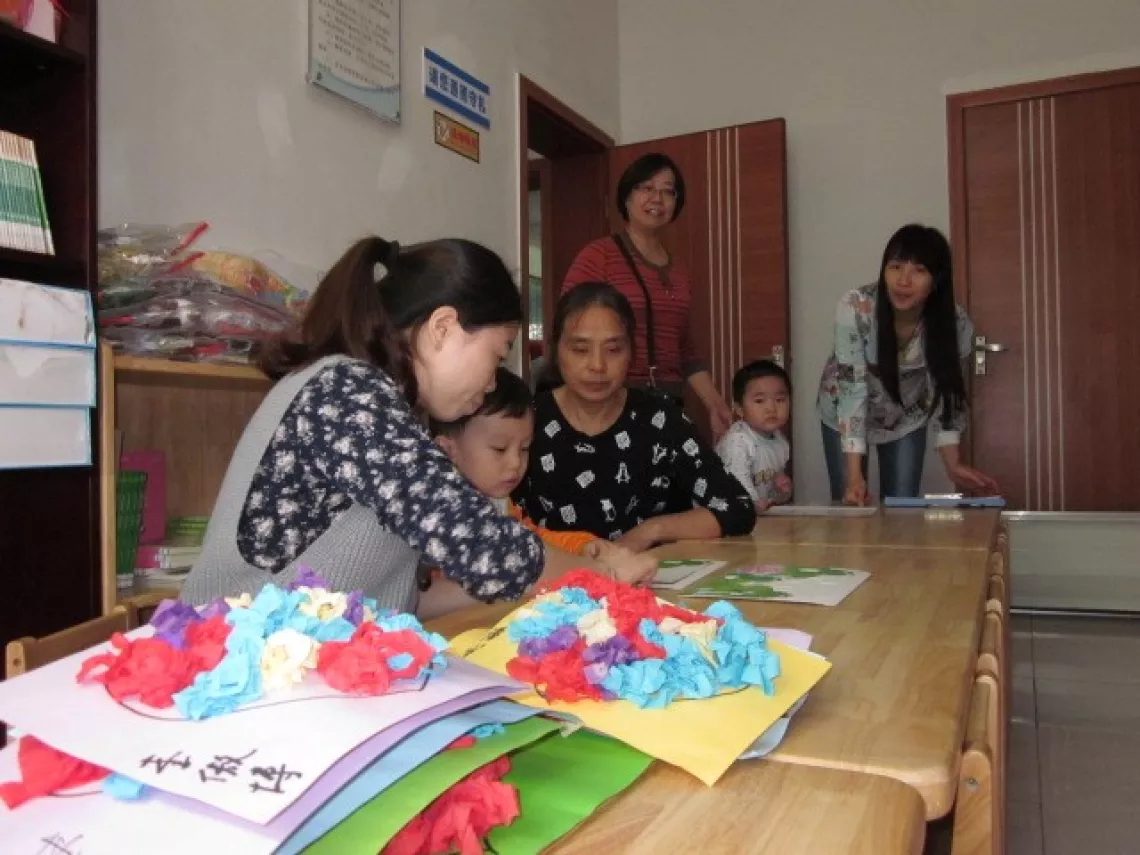
Apparently, Chen Qiuli shared the same confusion as mine when she started working as a volunteer in Mawangdui community centre in Changsha, Hunan Province. “It wasn't easy. When I first joined the programme, I knew nothing about ECD for children 0-3. I tried to organise kindergarten games but neither children nor parents showed much interest. I felt frustrated and useless at the time. Shortly afterward, the ECD project sent me to national training workshops. Project experts also came to our city to provide on-site support and guidance. I learnt that instead of using the traditional kindergarten teaching methods on the very young children, it is important for parents, together with the centre and the local community, to adopt and provide an approach that takes into account each child's specific needs. As part of this method, I visit households regularly to assess if children experience any developmental difficulties and teach parents how to make toys and game pieces with household materials.”
Parents are children's first teachers who play as important a role as school teachers. Educating caregivers on good parenting practises is one of the key activities for volunteers like Qiuli at the ECD centres. Parents at the centres now know that the first days of a child's life matters, that children may not be able to reach full potential due to their neglect and negligence, that nurturing care is not rocket science and even grandparents with no educational background can make a difference in home settings. Everyone loves their children. All caregivers need is a change of mind-set and to be equipped with essential knowledge and skills so that they can provide their children with a supportive environment and a jump start to excel in schools and the future job market.
[1] UNICEF, Building Better Brains, 2015


